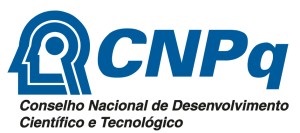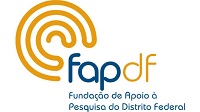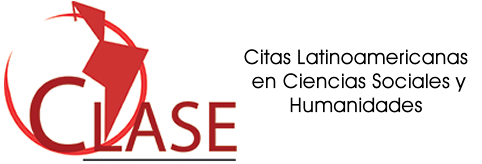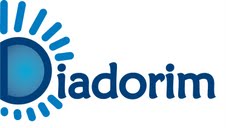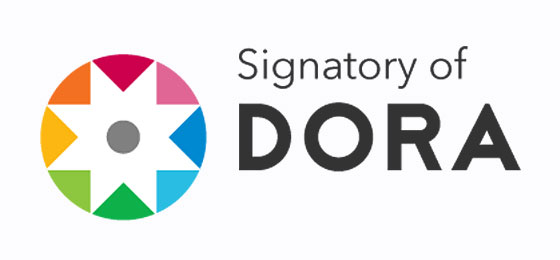Sobre a estruturação de redes sociais em associações voluntárias: estudo empírico de organizações não-governamentais da cidade do Recife
Keywords:
ONG; redes sociais; Recife (PE); mobilização de recursosAbstract
This article attempts to describe the process of strutuctarion of social networks in voluntary associations. Departing from an empirical survey in NGOs in the city of Recife, we investigate how social networks are built and the influence of their design in the action of NGOs. Firstly, we conclude that the relevance of the mission of the NGOs is not an essential element in mobilizing external ressources. To a great extent, the success of their action depends on the capacity they develop of atracting institutional ressources (from the State, the Church, International Cooperation, etc.) Second, the structuration of these networks makes possible the compairason of the relationship between the establishment of the agenda of these NGOs and the existence of conflict between this agenda and the purposes established at their original mission.
Downloads
References
ABONG. As ONGs e a realidade brasileira. Cadernos da ABONG, v. 6, 1996.
BABBIE, Earl. The practice of social research Belmont, CA : Wadsorth, 1995.
BANDIELD, Edward. The moral basis of a backward society Chicago : The Free Press, The University of Chicago, 1958.
BURT, Ronald. The social structure of competition. In: NOHRIA, N; ECCLES, Robert G. Network organizations: structure, form and action Cambridge: Harvard Univesity Press, 1992.
CLARKE, Gerald. Non-governamental organizations and politics in the developing world. Swansea : Centre for Development Studies, University of Wales, 1996.
COHEN, Jean L; ARATO, Andrew. Civil society and political theory Cambridge, MA: The MIT Press, 1999.
COLEMAN, James. Foundations of social theory Cambridge, MA: Harvard University Press, 1994.
DOUGLAS, James. Political theory of nonprofit organization. In: POWELL, Walter (Org.). The non profit sector: a research handbook New Haven : Yale University Press, 1987. p 43-54.
EPSTEIN, Richard. A reconciling individual liberty with the Common Good Reading, Mass : Perseus Book, 1998.
FONTES, Breno A. S. M. Movimentos sociais: produção e reprodução do sentido Recife : Ed. UFPE, 1999.
FRITS, W. NGOs in Latin América: past strategies, current dilemmas, future challenges Oxford, England : INTRAC (The International NGO Training and Research Centre), 1995. (Occasional Paper Series, n. 8).
GODBOUT, Jacques. L'esprit du don Paris : La Découverte, 1992.
GOHN, Maria da Glória. Cidades e ONGs: novas parcerias, novos atores. In: ENCONTRO NACIONAL DA ANPUR, 4. 1995. (Sessão temática: Agentes e Novas Formas de Interação Sócio-Espacial). Brasília, 1995.
GRANOVETTER, Mark. The strenght of weak ties: a network theory revisited In: ALBANY CONFERENCE on contributor of networks analysis to structural sociology. 1981.
HABERMAS, Jürgen. Raison et légitimité: problèmes de legitimation dans le capitalisme avancé Paris : Payot, 1978.
KISH, Leslie. Survey sampling. New York : Wiley Interscience, 1995.
KURTZ, Robert. Para além do Estado e mercado: autonomia de organizações comunitárias permite superar previsões da economia totalitária. Folha de S. Paulo, 3 dez. 1995, Caderno Mais, p. 15.
LANDIM, Leilah. The nonprofit sector in Brazil. In: ANHEIER, Helmut et al. Defining the nonprofit sector: a cross national analysis Manchester : Manchester University Press. 1998.
LAVILLE, Jean Louis. L'économie solidaire: une perspective internationale Paris : Desclée de Brower, 1994.
MARYKOUSKY, Barry et al. The seeds of weak power: an extension of network exchange theory. American Sociological Review, n. 58, p.197-209, 1993.
MAUSS, Marcel. The gift: the form and reason for exchange in archaic societies London : W.W. Norton, 2000.
MELO, Marcus André. As ONGs no Brasil Recife, 1997. (mimeogr).
NAVARRO, Juan Carlos (Ed.). Community organizations in Latin America. Washington DC : Inter-America Development Bank, 1997.
OFFE, Klaus. Problemas estruturais do Estado capitalista Rio de Janeiro : Tempo Brasileiro, 1975.
OTTAWAY, Marina. Strengthening civil society in other countries. The Chronicle of Higher Education, june 29, 2001.
PANFICHI, Aldo. Networks and identities among urban poor in Lima, Peru In: LASA INTERNATIONAL CONGRESS, 1997, Guadalajara, Mexico. Panel POL41 (Networks and Political culture. Argentina, Brazil and Peru) 1997.
POWELL, Walter W; CLEMENS, Elisabeth S. Private action and the public good New Haven : Yale University Press, 1998.
PUTNAM, Robert. Making democracy work: civic traditions in modern Italy Princenton : Princenton University Press, 1993.
PUTNAM, Robert. Bowling alone: the collapse and revival of American community New York : Simon and Schuster, 2000.
ROSANVALLON, Pierre. La crise de l'Etat Providence Paris : Sueil, 1981.
________. La nouvelle question sociale Paris: Sueil, 1995.
SCHERER-WARREN, Ilse. ONGs: os novos atores da "aldeia global". Paper apresentado no GT01 Cidadania, conflito e transformações urbanas, na XX Reunião Anual da ANPOCS, Caxambu, MG, out. 1996.
SCOTT, John. Social network analysis: a handbook London : Sage, 1997.
SMITHT, Steven Rathgeb; LIPSKY, Michael. Nonoprofits for hire: the welfare state in the age of contracting Cambridge, MA : Harvard University Press, 1994.
TOCQUEVILLE, Alexis de. A democracia na América Belo Horizonte : Itatiaia, 1977.
WASSERMAN, Stanley; FAUST, Katherine. Social network analysis: methodos and applications Cambridge, UK: Cambridge University Press, 1998.
WUTHNOW, Robert. Loose connections: joining together in America's fragmented communities Cambridge, MA : Harvard University Press, 1998.
Downloads
Published
How to Cite
Issue
Section
License
Copyright (c) 2022 Revista Sociedade e Estado

This work is licensed under a Creative Commons Attribution-NonCommercial 4.0 International License.

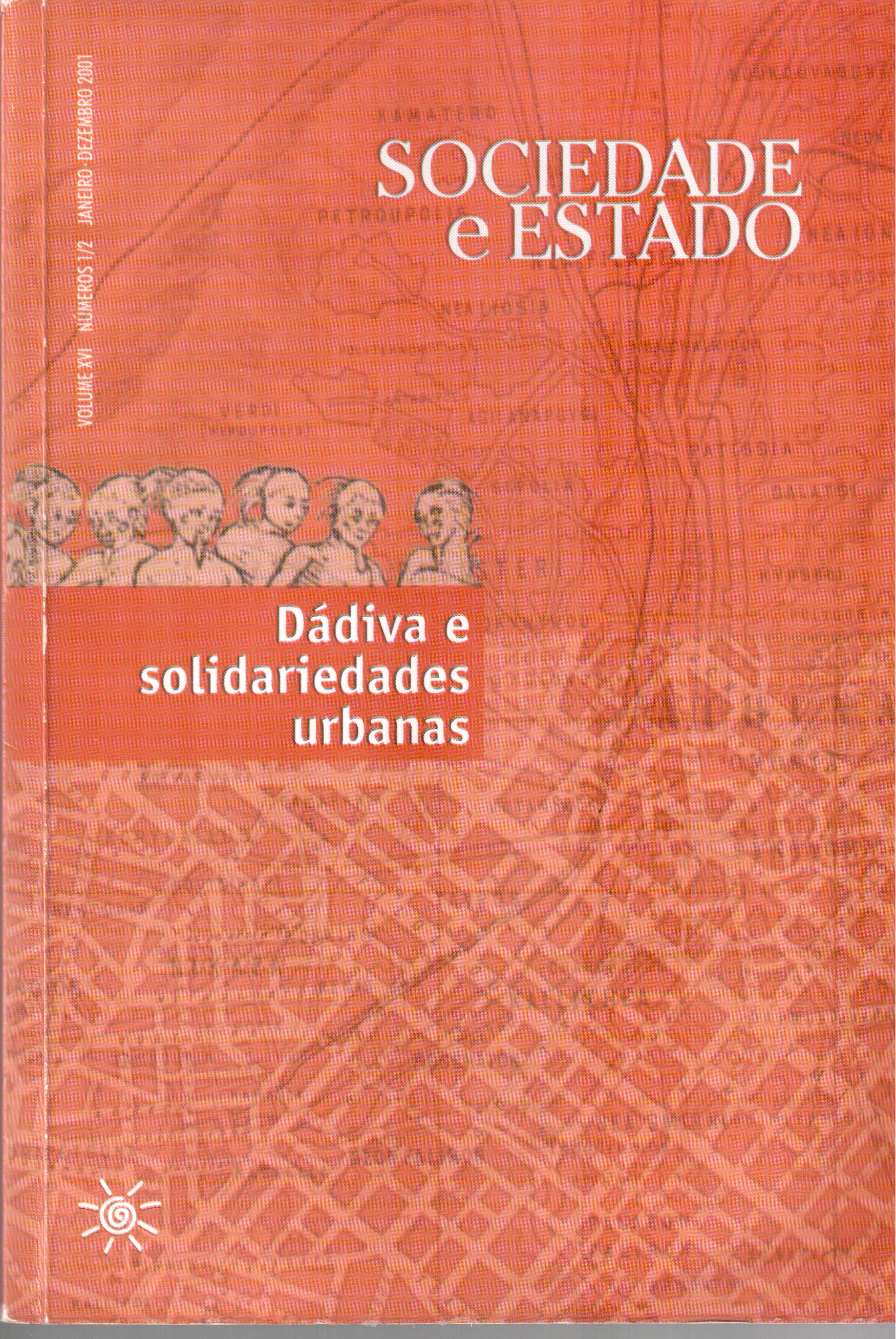


.jpg)

